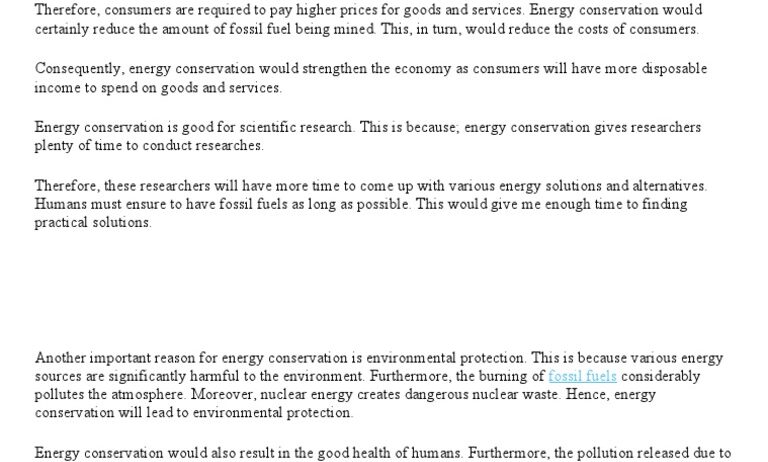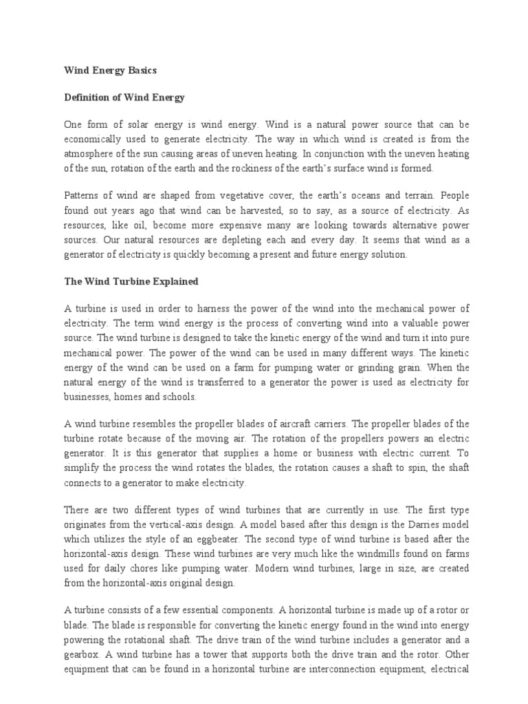Energy conservation is not just a mere buzzword; it is an essential strategy that addresses a global conundrum faced by modern civilization. The pervasive consumption of energy has dire ramifications for the environment, economy, and society at large. Exploring the intricate facets of energy conservation reveals both its feasibility and significance in fostering a sustainable future.
Energy conservation involves the deliberate utilization of less energy by employing more efficient technologies and practices. This fundamental concept can yield bountiful dividends, not only in reducing energy expenses but also in safeguarding natural resources and mitigating environmental degradation. The potential benefits of conserving energy are profound and manifold, thus merit focused exploration.
Moreover, in the age of climate crisis, conserving energy transcends individual responsibility; it becomes a collective imperative for communities, corporations, and governments alike. As we delve deeper into the realms of energy conservation, understanding both its importance and the strategies for its implementation becomes crucial.
Understanding Energy Conservation
At its core, energy conservation refers to the practices that reduce energy consumption without sacrificing utility. Unlike energy efficiency, which seeks to use technology to achieve the same outcome with less energy, energy conservation focuses on changing behaviors and habits to decrease overall energy demand.
This distinction is pivotal. While energy-efficient appliances can substantially cut down energy usage, they do not address the underlying behavioral patterns that drive consumption. Thus, educating individuals and organizations about energy use is the cornerstone of a broader conservation movement.
Human behaviors, from daily commuting choices to dietary preferences, significantly influence energy consumption. A shift in mindset toward conscious and responsible usage can have enduring impacts. For instance, opting for public transportation over personal vehicles not only reduces fossil fuel dependence but also diminishes traffic congestion and lowers greenhouse gas emissions.
Incorporating sustainable practices into daily routines is a powerful strategy. Simple actions, such as turning off lights when not in use, unplugging devices, and opting for reusable bags, can collectively lead to substantial energy savings.
Unveiling the Environmental Impact
The rationale for energy conservation extends far beyond immediate economic savings. The environmental implications of unchecked energy consumption are profoundly alarming. The burning of fossil fuels for energy is one of the leading contributors to climate change. Emissions rising from power plants, vehicles, and industrial processes dramatically escalate the greenhouse effect, resulting in global warming.
Due to elevated atmospheric CO2 and other pollutants, ecosystems face unprecedented challenges, including habitat loss, altered weather patterns, and increased biodiversity extinction rates. In the quest for energy conservation, a dual benefit emerges: not only does it help to preserve our natural environment, but it also safeguards the future of ecosystems and wildlife that are crucial to planetary health.
Furthermore, conserving energy contributes to the enhancement of air quality and public health. Fossil fuel combustion releases a trove of toxins, including particulates and heavy metals, which can trigger a myriad of health issues. By reducing energy consumption, we effectively curtail harmful emissions, fostering a healthier society.
Economic Viability of Energy Conservation
Energy conservation serves as a cost-effective strategy for individuals and businesses alike. The immediate effect of adopting energy-efficient technologies can lead to significant savings on utility bills, while the long-term benefits often translate into enhanced profitability and sustainability.
For businesses, the integration of energy conservation methods can provide a competitive edge. Companies that pursue green practices tend to attract more environmentally-conscious consumers, thereby enhancing brand loyalty and market share. Additionally, governmental incentives for energy-efficient upgrades can substantially offset initial investments, making conservation economically advantageous.
The shift towards renewable energy sources complements conservation efforts by offering sustainable alternatives to fossil fuels. Solar, wind, and hydroelectric power present exciting possibilities for reducing reliance on traditional energy sources, thereby promoting ecological balance and energy security. As technological advancements continue to lower the cost of renewable energy, the transition becomes increasingly feasible for both individuals and businesses.
Policy and Community Engagement
While individual actions are instrumental in energy conservation, collective effort is inherently more powerful. Governments worldwide are recognizing the critical need to establish policies that not only encourage but mandate energy-saving methods. From implementing regulations that compel energy efficiency in buildings to providing tax incentives for renewable energy investments, policy plays a pivotal role in shaping our energy landscape.
Commencing community initiatives aimed at awareness and education can galvanize collective action. Organizing workshops and campaigns to educate the public on energy-saving practices can foster a culture of conservation. Grassroots movements often wield significant power, leading to structural changes and enhanced community resilience in the face of energy crises.
Conclusion: A Call to Action
In summation, the question “Can energy be conserved?” is unequivocally answered with a resounding affirmative. The energy conservation movement stands as a beacon of potential, promising not only an environmentally sound future but also economic viability and social well-being. By embracing conservation principles, individuals, businesses, and governments alike can collaboratively forge a path toward a sustainable world.
The time to act is now. Each small step contributes to the larger journey toward energy preservation and the safeguarding of our planet for future generations. It is not just an environmental choice; it is a moral imperative that demands our immediate and concerted attention.







